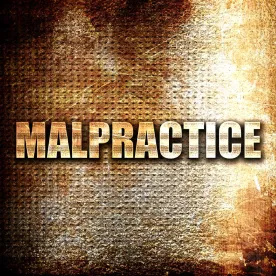One of the greatest fears of most practicing professionals is accusations of malpractice. When it comes to medical professionals, the issues loom large indeed. As recently as the end of last year (2018), the courts saw a number of malpractice lawsuits that could set precedent for many years to come. Attorneys would do well to keep abreast of such developments.
Malpractice Lawsuit in Kentucky Supreme Court
US News and World Report wrote in November of last year, “Kentucky’s state Supreme Court…struck down a law requiring a panel of doctors to review medical malpractice lawsuits and upheld a law banning mandatory union dues for most employees.” While the latter half of this ruling isn’t exactly applicable for our present purposes, the former most certainly is.
According to the same article, the law in question that the Kentucky Supreme Court struck down entailed delayed access to the court system because it required that “whenever someone files a medical malpractice lawsuit in Kentucky it is first reviewed by a panel of doctors before it can go to court. The doctors have nine months to issue a report on whether they think the claim has merit. The report can then be used as evidence at trial.”
The bill was pushed through by a woman named Tonya Claycomb, who claimed that it kept the courts from being accessible to her. As it is her right by law to have access to the courts without delay, she sued on behalf of her child, whom she also claimed had been the object of medical malpractice at birth.
Doctors Appealed Malpractice Lawsuit in Pennsylvania
In Pennsylvania, there is another case that could have wide-reaching implications for anyone involved in a medical malpractice suit in that state. The case in question regards a doctor who perforated a patient’s bowel during a hysterectomy surgery, for which the patient sued, claiming negligence and medical malpractice. In Pennsylvania, to this point, it had been the law that, essentially, a doctor was not allowed to claim that a patient waived the right to claim negligence. This applies even more so in cases where there is a common occurrence of error or complication.
According to the Pennsylvania Medical Society (PAMED), “Ms. Mitchell [the plaintiff] subsequently filed a medical liability action against Dr. Shikora, Magee, and Dr. Shikora’s practice group [the defendants]. By failing to identify her bowel prior to cutting it, Ms. Mitchell claimed Dr. Shikora had breached his duty of care. Dr. Shikora countered that Ms. Mitchell’s injury was a complication of injury, not an indication that negligence occurred.”
The initial suit was ruled in favor of the defendant. The plaintiff filed again, was denied, then took her suit all the way to the Pennsylvania Supreme Court. She claims that the evidence allowed in the original case was misleading to the jury, as her suit alleged negligence, not complications due to surgery. After deliberation, the Court ruled in favor of the plaintiff, claiming that the evidence presented regarding possible complications did not have any bearing on whether or how likely the defendant was in being negligent during the plaintiff’s surgery.
The case is not over, however, as the doctors have appealed to the Pennsylvania Supreme Court on their own behalf, regarding the precedent set by a different case relevant to their own, Brady v. Urbas. In that case, “the Pennsylvania Supreme Court held ‘that evidence that a patient affirmatively consented to treatment after being informed of the risks of that treatment is generally irrelevant to a cause of action sounding in medical negligence.’”
Summary
While there remains to be seen what exactly will transpire from the retrials and appeals to the state Supreme Court justices, there is much to glean from what malpractice suits must show or defend against in the courts. In some states, doctors are being held to complete their job without dismissing negligence, and they cannot claim that ordinary risk prevents them from such failure of proper care. Overall, there is a substantial sense that malpractice lawsuits could be more frequent, in the case of Kentucky, or more difficult, in the case of Pennsylvania, for healthcare providers given these recent rulings. As stated earlier, attorneys, especially those in these jurisdictions, should be well aware of the cases themselves as well as their wide-reaching implications.




 />i
/>i

